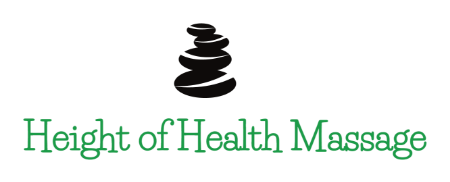FAQs
At Height of Health Massage, we’re proud to be your go-to massage therapy center in Fort Collins. We understand that you may have questions about our services, pricing, and other important details. This page is designed to provide you with answers to the most commonly asked questions our massage therapy center recieves to ensure that you have all the information you need before scheduling your next massage appointment. Whether you're wondering about the benefits of massage therapy, what to expect during a session, or how to pay for your services, we've got you covered. Our goal is to make your experience with us as seamless and enjoyable as possible, and we believe that being informed is key to achieving that. Browse through our FAQs below and feel free to reach out to our friendly and knowledgeable team if you have any further questions. Get ready to embark on a journey of relaxation, rejuvenation, and overall well-being with Height of Health Massage.
Q: This is my first massage, so what should I wear?
A: Massage therapists manipulate the soft tissues of the body, so disrobing at your comfort level is generally requested. You will be lying on a massage table fully covered by a sheet and blanket. When the massage therapist needs to work on a specific area like an arm or leg, that area will be temporarily undraped. If you are uncomfortable at any time or for any reason, please let us know right away and ask any questions you may have.
Q: I like full body massages, but I really just want to focus on a few areas today... can you do that?
A: Full body massages (which generally include, head, neck, shoulders, back, arms, and legs, as well as hands and feet) are great and often important, but if you're experiencing acute shoulder and neck pain let's say, it's probably not necessary to work on your toes. Many of our clients do regularly request focused massage work, and others will request 80% focus work and 20% on everything else. It's your therapeutic massage so it's up to you!
Q: Sometimes during massages I wish my therapist would use deeper pressure. Should I feel embarrassed about asking?
A: Absolutely not! At Height of Health Massage, we want you to enjoy your massage and understand that every client is different. It is far better to request more or less pressure during the massage from time to time than to leave feeling like you did not get the massage you wanted. For both therapeutic and relaxation massage, it is important that you receive enough pressure to feel as though your muscles are being worked, but not to the point of pain. Massage therapy is supposed to be a "good hurt" and on a pain scale of 1 - 10, the pressure being applied should be around 5 - 7. Anything above or below those numbers are not therapeutic.
Q: Am I required to talk during my massage or is it ok for me to just relax?
A: You can definitely choose not to talk during your massage, and many people choose to stay silent for the majority of the massage. This is your massage! It's definitely not awkward for your practitioner if you choose to just enjoy your massage by focusing on relaxing. From time to time, your massage therapist might check in on you, such as asking about how the pressure feels towards the beginning of the massage, to turn over, move an arm, etc., but chit-chat is not a necessity. On the other hand, some people feel more comfortable and more relaxed by talking and that is totally fine as well. You can also choose to talk for half and sleep through the rest — again, it's all up to you!
Q: What should I do after receiving massage therapy?
A: Massage therapists work to alleviate scar tissue and adhesions (knots) in the muscle tissues by using pressure to "break up" those areas and to bring much-needed blood flow back to various muscles. This is particularly the case with therapeutic massage and techniques such as trigger point therapy. Generally, the more pressure applied and time spent on specific areas, the more likely that area is to be slightly sore a few hours later or even the next day. This is often due to inflammation after the massage and is part of the healing process. If you are feeling a little sore, it is a good idea to ice the sore areas. Drinking water and keeping well hydrated is a great idea for both muscular and overall health. Research has shown repeatedly that toxins are not released during or after a massage, so don't worry about drinking tons of water to flush out the toxins.
Q: How often should I get massages?
A: The answer to this question depends entirely upon you and your current situation. If you are experiencing muscle pain and tension in a specific area or areas that are bothersome or noticeable on a daily basis, frequent massage on a weekly or biweekly basis may be suggested until the pain has lessened. On the other hand, if you are experiencing some aches and pains from time to time or just looking to relax, we generally suggest a regular massage on a 4 - 6 week basis. This is what we consider a maintenance massage. Think of it like an oil change; it's suggested you get one every 3000 - 5000 miles, or in this case, your body needs maintenance every 4 - 6 weeks.
